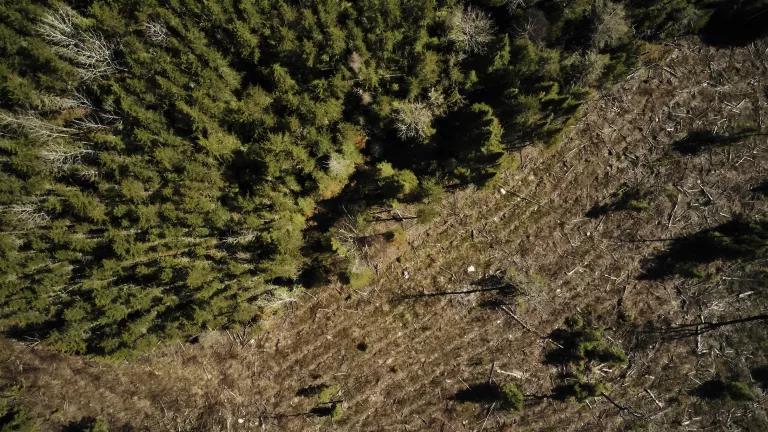House bill would give TransCanada's Keystone XL tar sands pipeline special exemption from US environmental law
Proponents of the Keystone XL tar sands pipeline in the House are pushing forward a measure that would exempt the Canadian pipeline company TransCanada from legal requirements placed on domestic pipeline operators. H.R. 3, or the Northern Route Approval Act, proposed by Representative Terry, is far more extreme than any previous pro-Keystone XL measure considered in the Congress to date. Terry’s bill would thwart a decades old bipartisan process for considering international pipeline applications - a process which the American public is heavily invested after submitting over a million comments detailing the tar sands project's significant environmental impacts. Moreover, in a series of unprecedented provisions, Terry’s bill would exempt the Keystone XL tar sands pipeline from the requirements of the National Environmental Policy Act (NEPA), the Clean Water Act (CWA), the Endangered Species Act (ESA), permitting requirements for federal rights of way, and the Migratory Bird Treaty Act. H.R. 3 isn’t a bill to approve Keystone XL. It’s a bill for giving a foreign company special treatment by exempting it from the nation’s most cherished laws protecting public health, welfare and the environment.
Of course, the House vote on Terry’s bill is little more than political theater – it has very little chance of becoming law. That said, this political theater sets a dangerous precedent. Even if it doesn’t become law, it creates a precedent for exempting a dangerous and controversial project, sponsored by a foreign company, from U.S. laws that domestic companies are required to abide by.
The Keystone XL pipeline should be considered by the same process that has evaluated every transborder pipeline proposal. This process is moving forward as it should – after all, TransCanada only applied for a permit for its northern pipeline a year ago. It is critical that the pipeline application process run it proper course with a thorough environmental review that will ensure safeguards for the health and safety of the American public from tar sands oil spills, refinery pollution, and climate change driven by tar sands expansion.
Moreover, it is in the public’s interest that TransCanada’s proposal be considered through a national interest determination process. Such a process would consider whether it’s in the public’s interest to bear the risks of tar sands spills, refinery pollutions and greater climate emissions in order for Canadian tar sands producers to refine their product at the Gulf and export it internationally. Because according to the State Department, most of the refined product from Keystone XL – including gasoline and diesel - will be exported internationally.
The need to take concrete steps to address climate change has never been greater – and the approval of Keystone XL would take the nation in the wrong direction by replacing conventional crude with even more carbon intensive tar sands as well as by driving rapid expansion of the tar sands production. Our lawmakers need to take serious steps to achieve energy independence and get our country back to work. Investments and jobs in clean energy is something our country can get behind.
Read more about the risks of Keystone XL:
- Just the facts: Climate Impacts from the Keystone XL Tar Sands Pipeline
- Reuters investigation deflates State Department's argument that rail can fuel tar sands growth
- Keystone XL Tar Sands Pipeline: Not the Jobs Plan the Oil Industry Pretends
- Top 5 Things You Should Know About Transporting Tar Sands Crude



